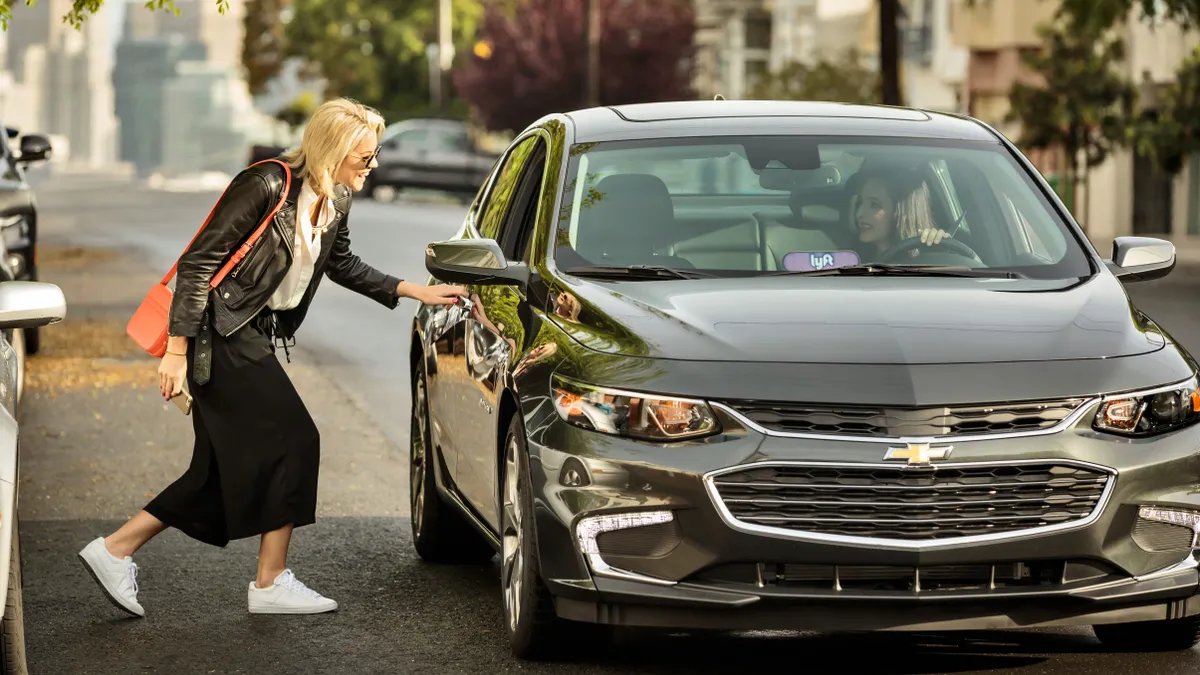Dive Brief:
- A new study from AAA finds that it can cost city residents twice as much to use ride-hailing services than it would to cover the same mileage in a car they own, even factoring in the cost of fuel, insurance and parking. The study found that it would cost the average city dweller $20,118 a year to rely solely on ride-hailing services, compared to $10,049 a year in a new car including parking costs.
- The AAA Foundation for Traffic Safety found that the average driver in an urban area drives 10,841 miles per year. Based on data from 243,838 single-rider ride-hailing trips, the study found that in 20 major cities, the annual cost to travel that mileage in ride-hailing services or rental cars ranged from $17,316 (in San Diego) to $27,545 (in Boston).
- Excluding parking fees, the AAA analysis found that the cost of owning and driving a new sedan drops to $7,321 a year, or 68 cents per mile. Parking costs ranged from $706 a year in Phoenix to $8,088 in New York, with an average of $2,728.
Dive Insight:
Car ownership has been on the decline, especially among young city residents who have more mobility options. Census data reported by Quartz in 2016 found a slight uptick in households that did not own a car, following decades of decline. Ride-hailing, meanwhile, is on the rise, thanks to its convenience and a way for urban residents to get around without owning a car.
That’s led to a flurry of analysis about what option is better for pocketbooks, the environment and congestion. Writing in The Conversation, F. Todd Davidson and Michael E. Webber of the Energy Institute at the University of Texas at Austin calculated that one-quarter of the entire U.S. driving population would be better off relying solely on services like Lyft and Uber, factoring in the value of time spent in traffic. The Kleiner Perkins 2018 Internet Trends Report found that in four of the five largest U.S. cities — New York City, Chicago, Washington, DC and Los Angeles — ride-hailing was cheaper than car ownership, but the reverse was true in Dallas.
Notably, the AAA study does not account for driving trips replaced by public transit, which is far cheaper per-mile than ride-hailing and can be used as a replacement for driving, depending on the scope of transit networks in a given city.
Auto companies are increasingly thinking about a future where car ownership is a smaller piece of the market, exploring opportunities like ride-sharing partnerships or shared fleets of driverless cars that can be utilized more efficiently. With ride-sharing continuing to capture more and more trips and more mobility options on the horizon, the ownership debate will continue in force for the near future.











